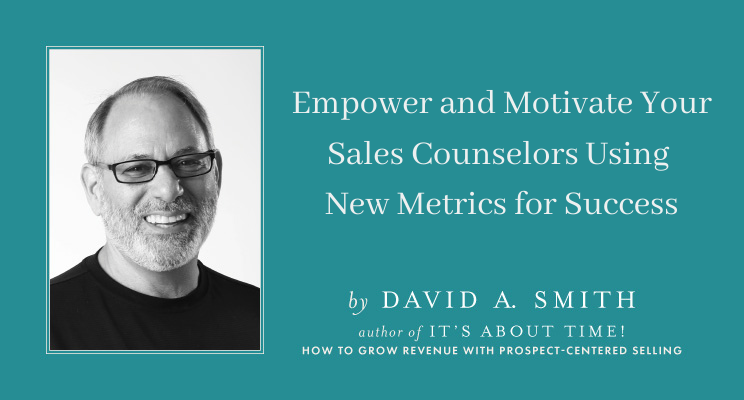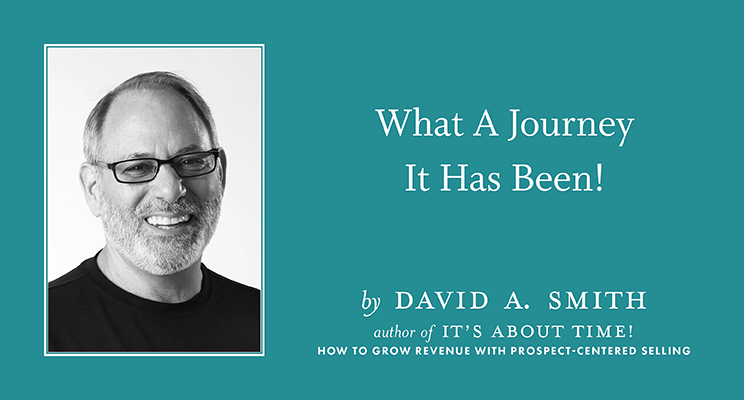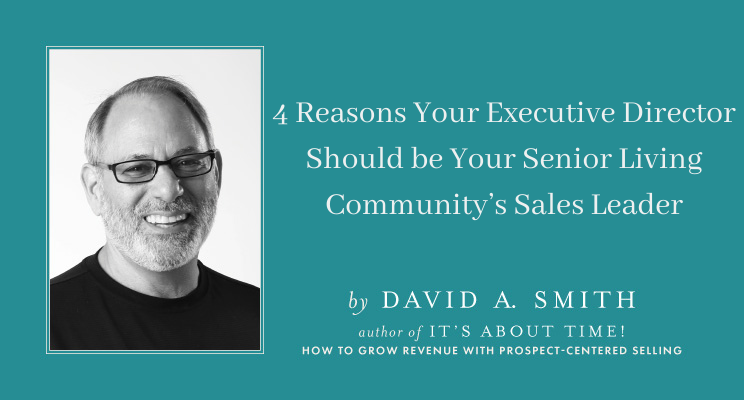5 Strategies to Build Trust With Your Senior-Living Prospects
The following is adapted from It’s About Time!
I’ve been involved in senior-living sales for decades, and you know what I’ve consistently found to be the most important factor in a prospect’s buying decision? Trust.
Prospects need a safe space where they can express honest feelings and concerns without the fear of being “sold to.” They won’t care about your community and its benefits until they feel safe and trust you as a person. If you open your heart and focus on connecting with the prospect, you can help them feel seen and valued and nurture a sense of belonging.
Trust isn’t just nice to have—it’s essential to a successful sales effort. Without it, a prospect will put up emotional walls. They will make objections that, when taken literally, make no sense. Lacking trust, the next steps remain hidden and obscure.
Despite how important establishing trust is, most sales counselors tend to avoid personal trust-building and start instead with the benefits of what they’re selling: the community and its venues, programs, and services. Most list features, floor plans, and monthly prices before they ever attempt to connect or build trust with the prospect. The result? The prospect or their family member thinks, “This person cares more about themselves than they do about me. Why would I ever buy from them?”
In many cases, sales counselors do this because they don’t know effective strategies to build trust and connection with their prospects. I understand, because I’ve been there too. That’s why I’ve developed five strategies that can help you build trust with your prospects, so you can help guide them to a logical buying decision that, ultimately, will improve their quality of life.
#1: Start With You
Why should your prospects trust you if you don’t have trust in yourself? Have confidence in your skills and abilities to assess readiness, and then guide prospects in making their own decisions. Whether they buy from you or not, trusting in yourself helps you maintain confidence through the tumultuous sales process.
To be effective in guiding prospects, sales counselors must have the emotional intelligence to regulate their own ego and emotions. Even if it doesn’t come naturally, senior living sales counselors can learn to actively listen. They can attempt to truly understand emotional resistance.
Be aware of your level of emotional quotient (EQ). This includes the ability to identify and self-regulate your own fears and anxieties, such as the fear of rejection or failure to meet goals or quotas; the fear of getting too close or even intimate with prospects who, 90 percent of the time, will reject you and just stay home; or the fear that you’ll “love them and lose them,” meaning that even if they do buy, once they move into the community and become residents, future interactions with them will be very limited.
It’s difficult, but your impact and success in converting higher-functioning prospects will grow if you can acknowledge and overcome your own vulnerabilities and fears heroically and with a determination to help guide the prospect, regardless of the sales result.
#2: Trust the Prospect
The world of senior adults who live alone is filled with unresolved dilemmas related to driving, wellness, money, and housing. Managing any of these dilemmas defies reason or logic. It requires a sustained engagement with uncertainty—marathon work with no quick fixes. And as much as we would like to “get the story” from an adult child, their emotional entanglement with their own childhood stories tends to increase emotional vulnerability for both the prospect and family member.
Intrinsically, prospects are the only people who truly can provide meaningful responses to their own dilemmas about whether, when, and where to move. It’s our job to help draw these responses out.
Don’t feel put off or frustrated when prospects resist, deflect, or “go cold” on you. The same goes for their adult children. Every prospect is just trying to navigate a difficult emotional path to an important decision. Emotional resistance is a natural expression of fear and uncertainty.
To build trust and succeed at motivating self-persuasion, acknowledge and encourage a process where the prospect is in control. Remember, they are facing an emotional chasm and are the only one who will have to actually make a significant transition and bear any fallout that follows.
#3: State Your Intentions
During your first interaction with a prospect, state your intentions right away, and actually mean what you say. Being authentic and saying things out loud helps quiet the anxiety and fear of rejection that our egos produce. It also invites trust from the prospect.
You can start by explaining your role. For example, you might say, “Mrs. Jones, my intention is to get to know you and to help guide you in your search, regardless of where you choose to move. Or perhaps you’ll decide to stay at home. That is very much your decision.”
Be sure to acknowledge the prospect’s control and autonomy: “I think that this is very much your (or your parent’s) decision, and we understand that it can be emotionally wrenching.”
Set realistic expectations: “In our experience, there may be a series of small steps in the decision-making process. Getting ready may take some time.”
Remember, your prospect may move slowly. Be patient: rather than getting frustrated, celebrate that they trust you enough to talk with you at all.
#4: Be Fully Present and Actively Listen
Active listening is one of the most effective ways to establish trust, but it’s hardly the easiest. When you ask a question, shut off the voice inside your head that is dying to fill the space with answers. Don’t start preparing your response. Instead, be present and actually listen. Stay curious.
When it’s your turn to speak, acknowledge and validate what you heard, and ask follow-up questions based on what you did or did not understand. Go deep and follow the prospect’s thematic content lead rather than trying to confront or persuade with solutions.
Deep down, at one time or another, all of us have had doubts and insecurities. These thoughts are amplified for higher-functioning senior living prospects since they are faced with an unwanted situation that is prompting serious consideration of a move. People are naturally more apt to trust you when you listen, truly care, and have a sincere desire to understand rather than convince them.
#5: Be Authentic and Ditch the Scripts
Search inside of yourself for the authentic desire to get to know—and then guide—the person on the other end of the conversation. Don’t ask if they’re a prospect or a family member or if they’re ready to tour or move in. Connect with them first, person to person. You’ll be amazed at how connecting person to person builds a foundation of trust. A trusting connection will help you and your prospect have an emotionally safe space to discuss deeply personal emotional issues.
We did a review of more than 1,000 mystery shop calls to senior communities across the US during 2018. The findings showed that the average number of questions asked by sales counselors (other than typical health or financial qualifying questions) was a total of only three. Most counselors, after a couple of qualifying questions, immediately turned to prescribed, scripted statements touting the community’s features and benefits.
Transcripts showed that sales counselors often spoke a lot more than they listened. Only 15 percent of sales counselors asked for the prospect’s name. Fewer than 9 percent asked about problems in their current living situation. Only 3 percent asked about the prospect’s life story.
The opportunity to build trust starts from the first prospect engagement, whether it’s a web inquiry, a walk-in, or a call-in. These connections can also be refreshed at various times in the sales scenario.
Move Beyond Your Own Ego and Fears
Most times, when a prospect or their adult child contacts you, they are struggling with resistance and fear about moving. To build trust, put your own ego and fears of rejection in check.
You can use these five strategies to help you focus on the prospect as a person. This will lead to connection and begin the process of building trust. And I promise: if you focus on that instead of jumping straight into the benefits and amenities of your community, you’ll be amazed at the difference you’ll see in your conversations with prospects.
For more advice on how to build trust with your prospects, you can find It’s About Time! on Amazon.


